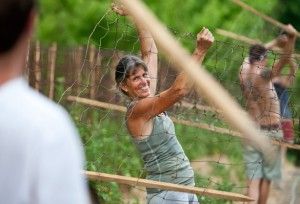Farmers battle with summer drought

July 3, 2012
In his 65 years of life, LeRoy Yoder has never seen a drought quite this intense.
“We are hurtin’. We are hurtin’ for certain,” Yoder, owner and partner of Echo Valley Orchard, said.
Yoder is one of many southern Illinois farmers who have suffered from the drought in the Carbondale area, a drought that shows little to no signs of an end. This is the eighth driest June in the history of Illinois, according to climateillinois.com, with only 1.77 inches of precipitation in the whole month. The drought will negatively affect all farmers as corn and soybean crops are listed as fair or worse, meaning crops will be smaller and less in quantity according to National Weather Service Paducah.
Advertisement
Livestock farms also suffer from the heat, as most pastures in the area have livestock rated as poor or very poor condition. Ponds across the regions are also drying quickly, which will hurt farmers who rely on ponds as a main source of water for their crops. In the long run, farmers all over will be hurt by the heat as crops wither, livestock becomes weakened and water becomes scarce.
Many farmers in southern Illinois are doing what they can to beat the heat, a job that has proven tough for many, as the U.S. drought monitor states the condition of the heat wave to be classified as an extreme drought.
Carbondale has seen some overcast in the past week, but nothing more than a sprinkling as the moments of rain lasted only minutes.
Gary Hill, president of Cherry Hill realty, sells farmland in the area and grows his own plants as a hobby.
Hill said many farmers will not only be impacted by the drought immediately, but will also be affected by the heat wave for the next year because of the way the land reacts to extreme temperatures.
He said in order to counteract this, farmers will have to incorporate irrigation systems, which can take hours to set up and maintain every day.
Advertisement*
For Hill, it is fairly easy to construct three water systems for his plants because not only does he live near a lake shore, but he doesn’t have anywhere near as many crops to take care of as a commercial farm.
Yoder, on the other hand, has 100 acres of fruit trees he has to tend to make an irrigation system for, which takes far more time than what he has available.
Yoder said he does what he can to get by, but sooner or later it has to rain, or else an already bleak situation could turn disastrous for some farms.
Shari Sweeney, owner of Greenridge Farm, a small non-certified organic farm, said she has a small pond she pumps water out of to give to her crops, but if the drought continues throughout July, she may have to resort to other measures because the pond will go dry.
She said being a farmer in times like these can be difficult, so she’s being more proactive with the resources she has.
“I’m actually learning how to use a tank to water my crops in case we don’t get rain and my pond starts to run dry. I then can switch over to watering with a tank,” Sweeney said.
Sweeney said she is impressed with Carbondale residents because they are not using water on their lawns and instead allowing it to be used for places that depend on it for the well-being of their establishments.
“Honestly and truly, in Carbondale, I have noticed people are being really good about not watering their lawns, you know, people are really trying hard to conserve water because if we don’t get rain it’s really going to come down to what the city has to offer,” Sweeney said.
Not only does the heat have adverse effects on the farms, it also takes a toll on the well-being of the farmers.
Sweeney said since everything is so dry, and dirt turns to dust, working on the ground can become dangerous because of the amount of dust inhaled on the job.
Sweeney herself has been to the doctor and said many people are coming into doctors’ offices, especially farmers, with allergy-like symptoms resulting from an excessive amount of dust in their nasal passages.
“I mean, the crops are one thing, but then there’s also taking care of yourself. Every time I’m out there I’m kicking up a lot of dust and that’s got to go somewhere,” she said.
Hill said the drought will not only affect farmers immediately, but will also have a negative impact on the marketability of the farms in the future.
“It may only be one year of severe drought, but appraisers look back on the past and it would be a fear factor that a potential buyer might be concerned about,” Hill said.
Despite everything, though, Yoder tries to remain optimistic through these difficult times.
“The weeds are even dying. That’s the plus part of it,” Yoder said. “We like to keep a little humor in this, even though it is not good.”
Advertisement








